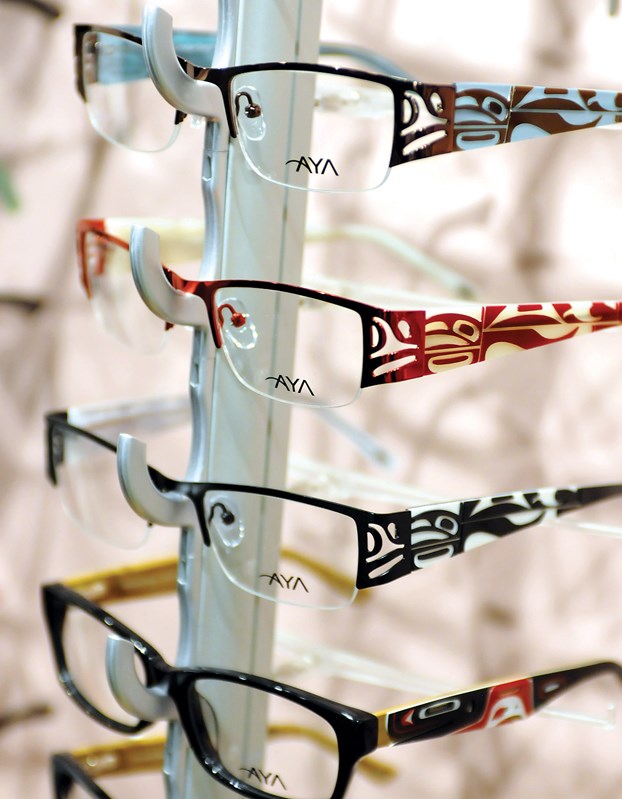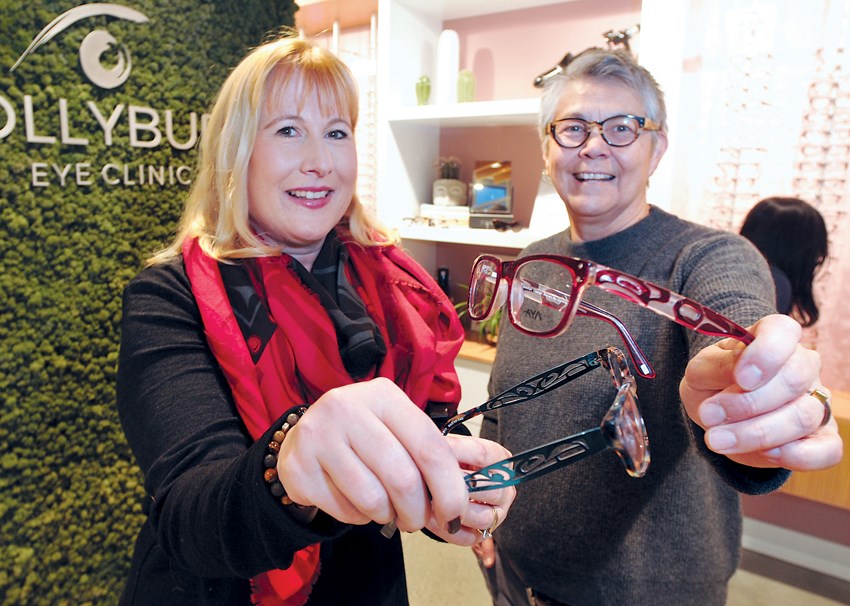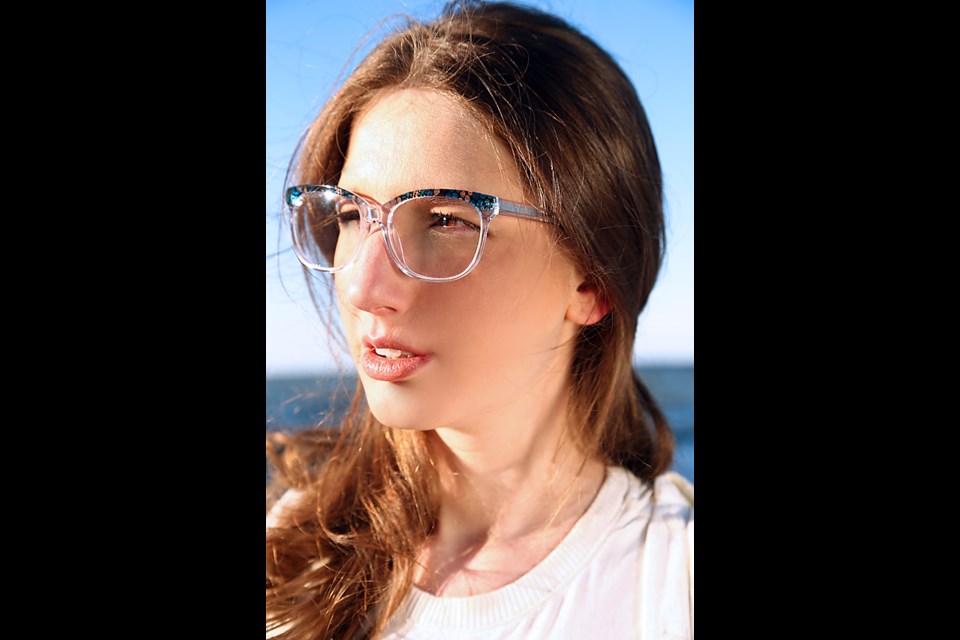A philanthropic eyewear brand founded by North Vancouver resident Carla D’Angelo is focusing on Australian Indigenous art for its latest collaboration.
For AYA Optical’s collection, Landlines, launching in February, D’Angelo worked with Ngarrindjeri artist Amanda Westely, who lives in Australia.
This unique eyewear design is marked by a traditional Aboriginal dot art across the brow lines and temples.
“Growing up in Australia and Canada gave me an appreciation for both Indigenous art forms,” says D’Angelo.
“The Australian dot art is traditional and contemporary at the same time. It is one of my bigger risks introducing Australian art into the Canadian market, but I believe the art is so appealing and captivating that the appeal will transcend borders.”
The collaboration is inspired by D’Angelo’s formative years in Australia where her family would go for drives in the countryside and collect Aboriginal art, including interesting wood carvings often inlaid with materials or painted.
D’Angelo researched various styles of Australian Aboriginal art for a couple of years but was quickly drawn to the dot art style.
“I loved the motion and fluidity of it combined with an almost meditative quality due to repetition of the dots,” she explains.
Last spring, D’Angelo made a trip Down Under to further explore the dot work and discover which artists were focusing on that particular form.
Westely’s family is one of the oldest Aboriginal families on the south coast of Australia. In her dot paintings, Westely uses a combination of ocean and earth colours to represent her landscapes and the small country town near the ocean where she lives.
She has also introduced brighter colours such as pink and orange to represent how the country looks during different seasons as well as different times of the day.
“It is always exciting for me to get to know these new artists and learn more about where they come from, their art forms and culture,” says D’Angelo.
“I think I am very fortunate to be able to collaborate and do my best to use our brand as a platform to share the artists’ stories.”
Other AYA products feature original artwork created by renowned First Nations artist, Corrine Hunt, Canadian co-designer of the 2010 Olympic and Paralympic medals.
Three new styles designed by Hunt are being released February. New and playful colourways such as pink purple gradients, dappled dot details and rich Havana tortoises are part of this release. Cat eye glasses as well as a full collection of sunglass readers are also new to the assortment.
“I love the fluidity and accuracy of her designs,” says D’Angelo of her longtime collaborator, Hunt. “She is true to the elements of First Nations designs but she brings a playfulness into it as well, often integrating an element that is unique to her, like a red dot or elements communicating peace.”
D’Angelo has previously said her goal with AYA is to work with Indigenous artists to make their art and stories more visible, bringing it to a wider audience through eyewear.

Prices range from $45 for sunglasses to $169 for designer optical frames. AYA eyewear is available online at claudiaalan.com and on the North Shore at Hollyburn Eye Clinic, which hosted Hunt for a special event on Jan. 17.
Guests enjoyed wine, smoked salmon and bannock, while perusing the AYA eyewear line out for display.

Partial proceeds from the sale of all AYA eyewear and accessory items donated to the ONEXONE First Nations nutritious breakfast program.
The brand has invested proceeds back into Indigenous communities since 2003, contributing more than $100,000 to initiatives such as helping at-risk kids in Northern communities start their day with a healthy breakfast.



